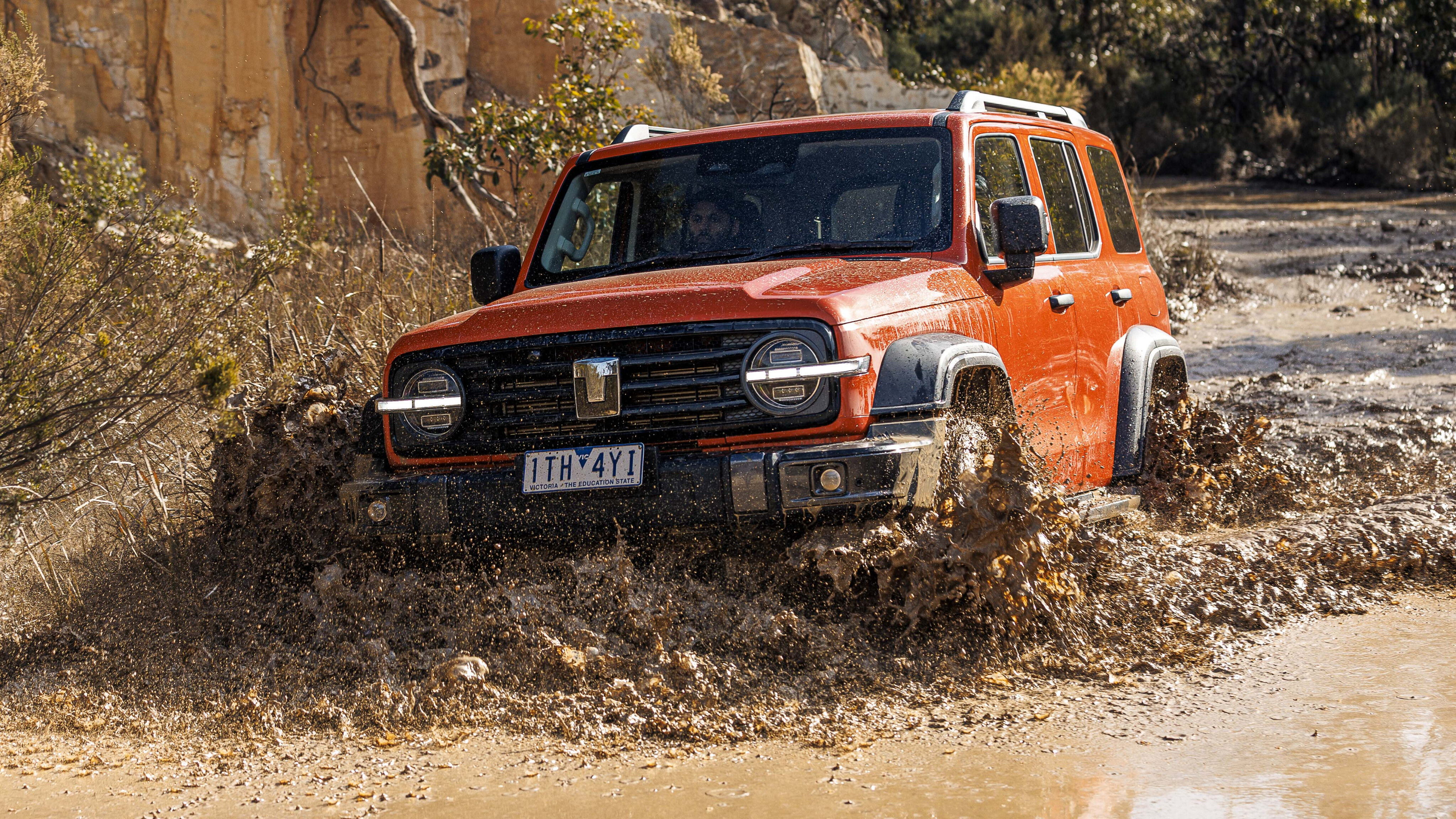
Things we like
- Equipped with plenty of features
- Highly customisable
- Off-road capable
Not so much
- Some intrusive driving aids
- A handful of interior quirks
- Limited payload capacity
A 50K petrol-powered boxy off-roader has arrived in Australia direct from Chinese marque Great Wall Motors, with the Wrangler-styled Tank 300 available in two petrol-only trim levels: Lux and Ultra.
These variants join the hybrid versions already here that utilise a 2.0L petrol-electric powertrain, but undercut them in price by around $10K respectively.
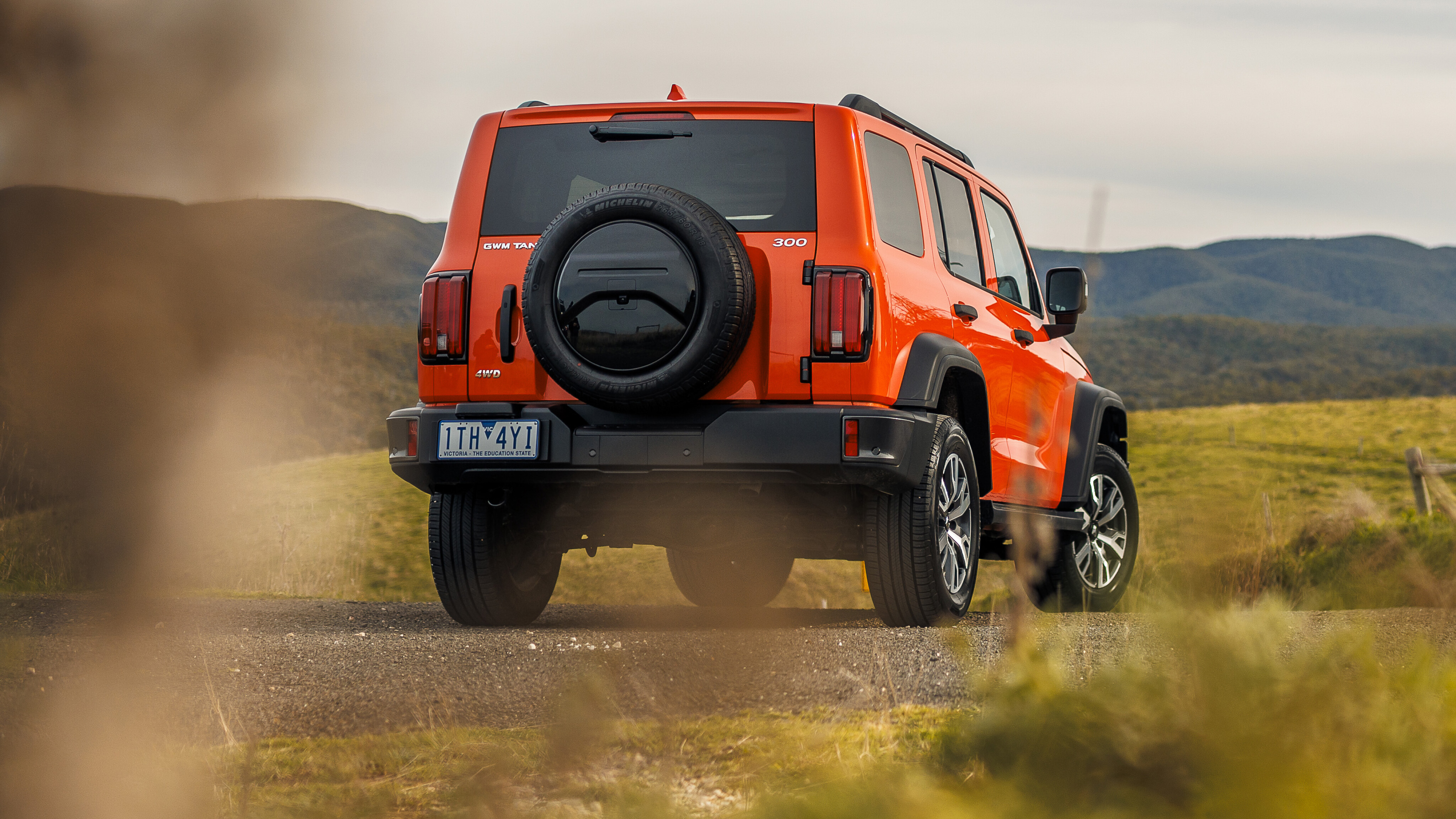
Boasting a lux level of equipment typically unseen in vehicles at this price point, the Tank 300 rides on a version of the GWM Ute’s ladder-frame chassis and features front and rear diff locks, a suite of advanced driving systems, five-star safety, and a modern interior.
So what’s the catch? We took the Tank 300 in top-spec Ultra guise to Lerderderg State Park, north-west of Melbourne, to find out.
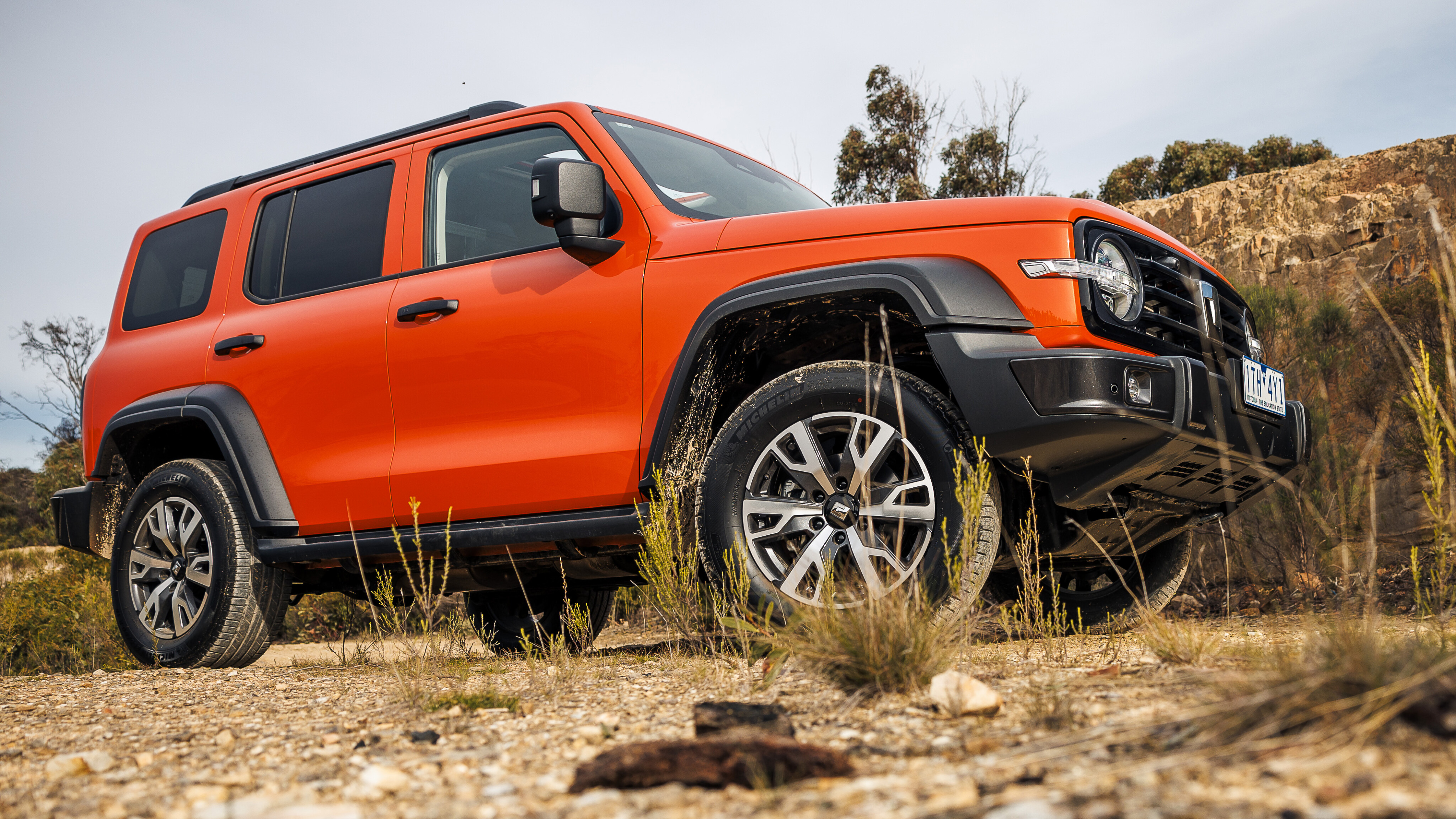
JUMP AHEAD
- How much is it, and what do you get?
- How do rivals compare on value?
- Interior comfort, space and storage
- What is it like to drive?
- How much fuel does it use?
- How safe is it?
- Warranty and running costs
- VERDICT
- Specifications
How much is it, and what do you get?
The petrol-only Tank 300 starts at an enticing $46,990 in Lux guise, which bumps up to $50,990 for the more premium Ultra model. For comparison’s sake, the hybrid versions cost $55,990 and $60,990 for the Lux and Ultra respectively, but you do get the petrol-electric powertrain.
With the Lux, buyers get 17-inch black alloy wheels; LED lighting; a 12.3-inch digital instrument cluster; a 12.3-inch infotainment touchscreen with Apple CarPlay and Android Auto; faux leather seats; a sunroof; nine-speaker sound system; ambient interior lighting; a suite of driver assistance technologies; a rear diff lock; roof rails; a tyre-pressure monitoring system; front and rear parking sensors; a 360-degree camera; and crawl control and tank turn functions.
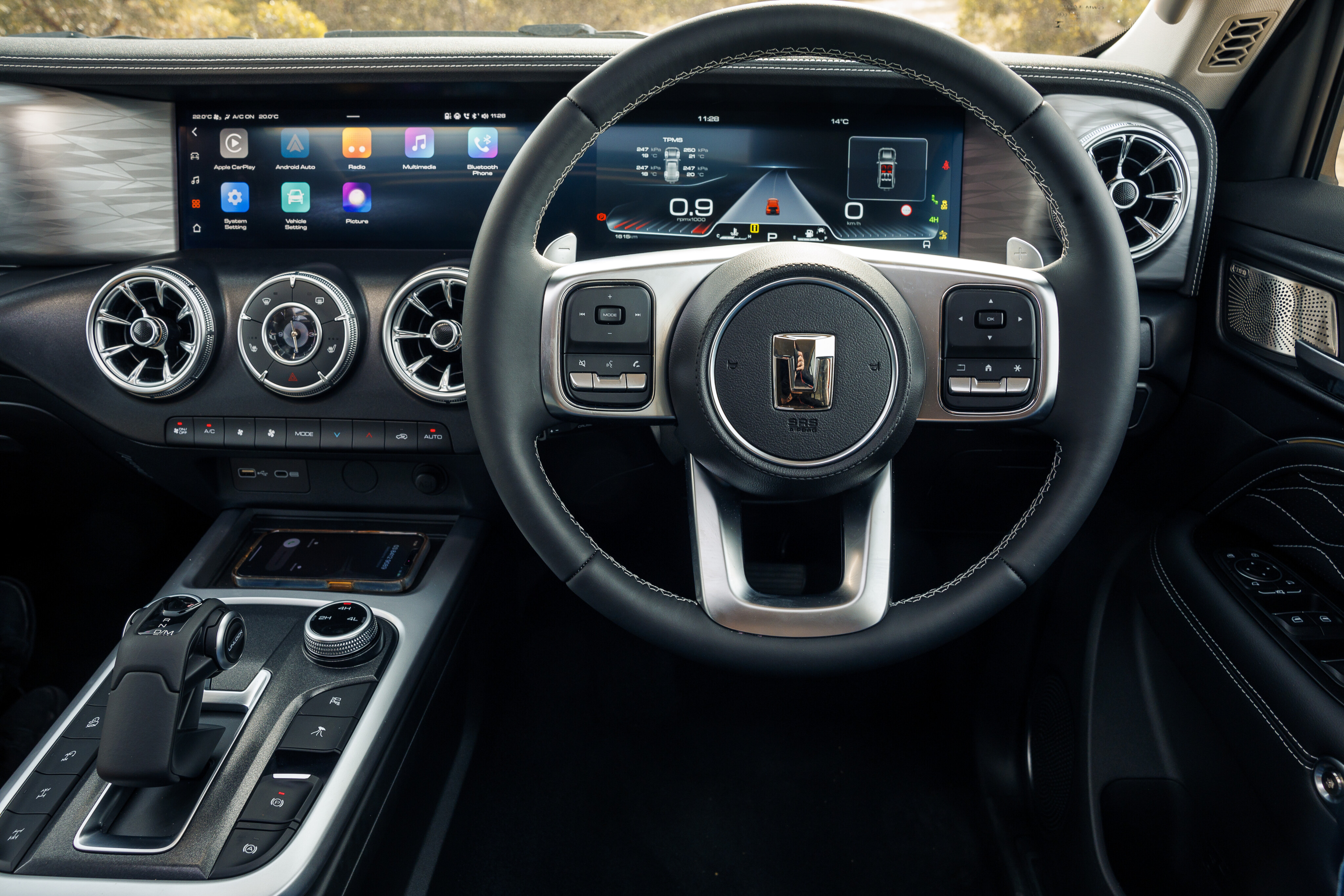
An eight-speed automatic is the only transmission available for the petrol-powered models
Upgrade to the more premium Ultra variant and owners are treated to the addition of Nappa leather seating; a massage function for the driver’s seat; heated and cooled front seats; 18-inch chrome alloys; a better sound system from Infinity; wireless smartphone charging; upgraded 64-colour ambient interior lighting; both a front and rear diff lock; and a 220-volt power outlet in the boot.
Both petrol-only versions are powered by a four-cylinder, 2.0-litre engine that delivers 162kW and 380Nm. An eight-speed automatic is the only transmission available for the petrol-powered models, while a nine-speed auto is mated to the hybrid variants.
Every Tank 300 model wears disc brakes front and rear and rides on double wishbone (front) and multi-link (rear) suspension.
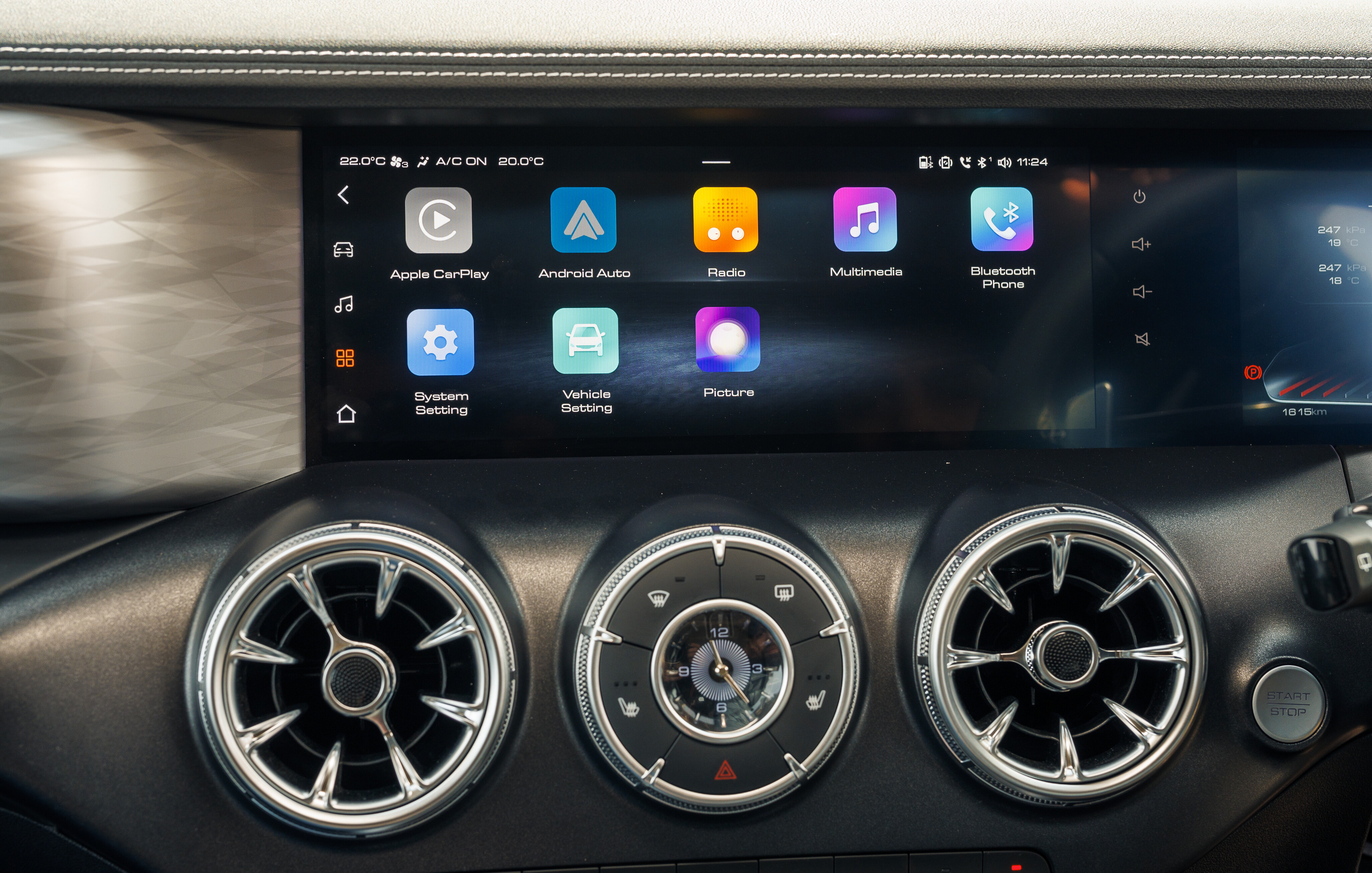
How do rivals compare on value?
The V6-powered Wrangler, with its extensive history and legendary off-road status, has a storied reputation for being a successful go-anywhere tourer or serious rock-crawler.
To compare the two would, in reality, not be a fair fight – despite the aesthetic similarities they may share. For starters, the Wrangler in four-door guise is at least $20K dearer.
A more comparable vehicle in this budget, mid-size SUV space is the all-new Mahindra Scorpio, which is more similarly priced at sub $50K, equally adept off-road, and utilises a four-cylinder 2.2-litre diesel engine for 129kW and 400Nm. It’s a tantalising budget-focussed comparison that we’ll bring your way shortly.
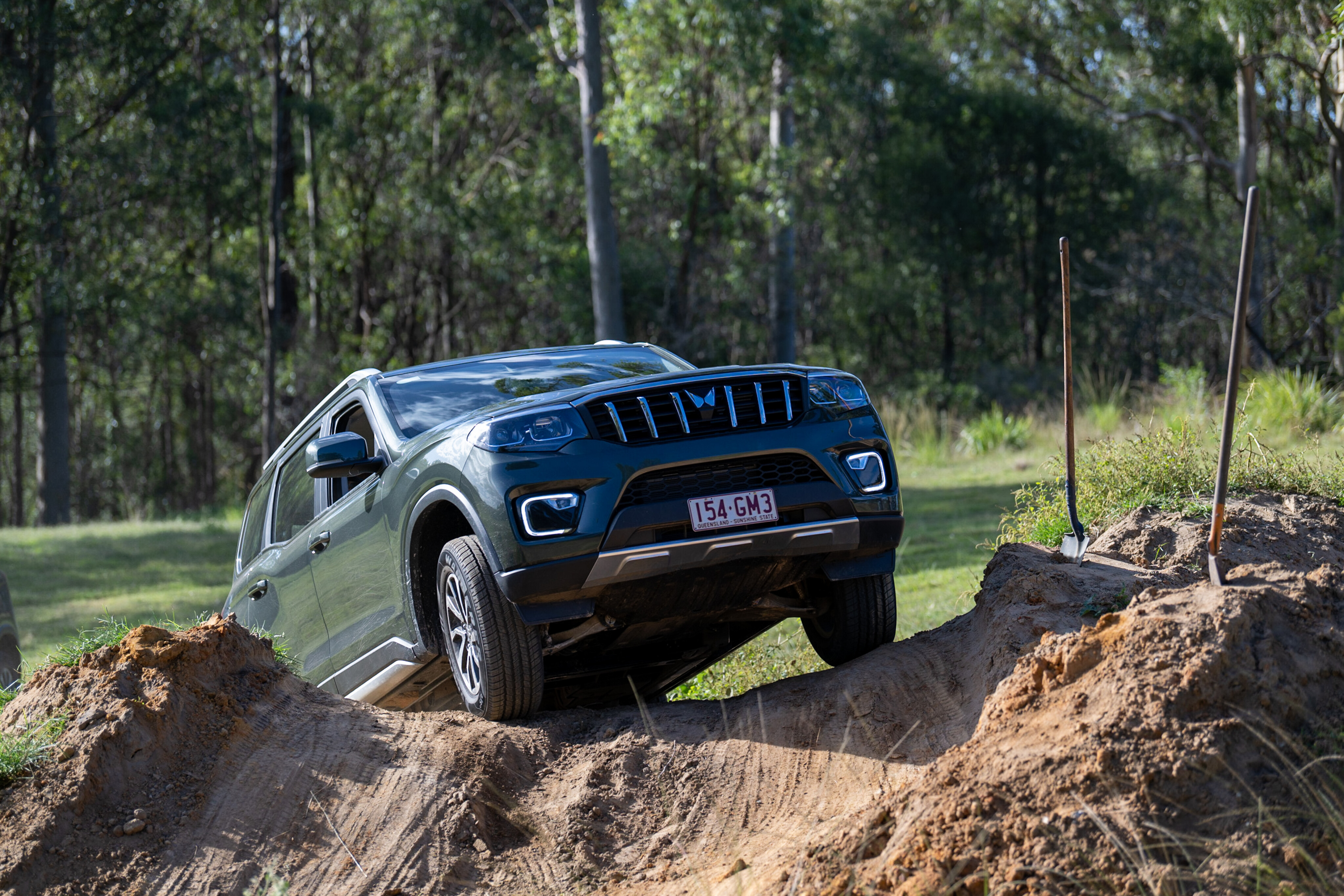
Interior comfort, space and storage
The interior is considerably plush for a vehicle at this price point, with the Ultra boasting Nappa leather with white stitching, heated and cooled front seats, and a sizeable, user-friendly 12.3-inch central touchscreen with Apple CarPlay and Android Auto functionality.
The front seats are well-bolstered and comfortable for long stints behind the wheel in pursuit of remote campsites. In the Ultra, the driver’s seat features eight-way powered adjustment and four-way lumbar support adjustment, to ensure the driver can find the ideal position. Driver’s seat massage is standard in the upper-spec Ultra variant.
There are two well-positioned USB ports in the front, with copious storage pockets for drink bottles and other bits and pieces.
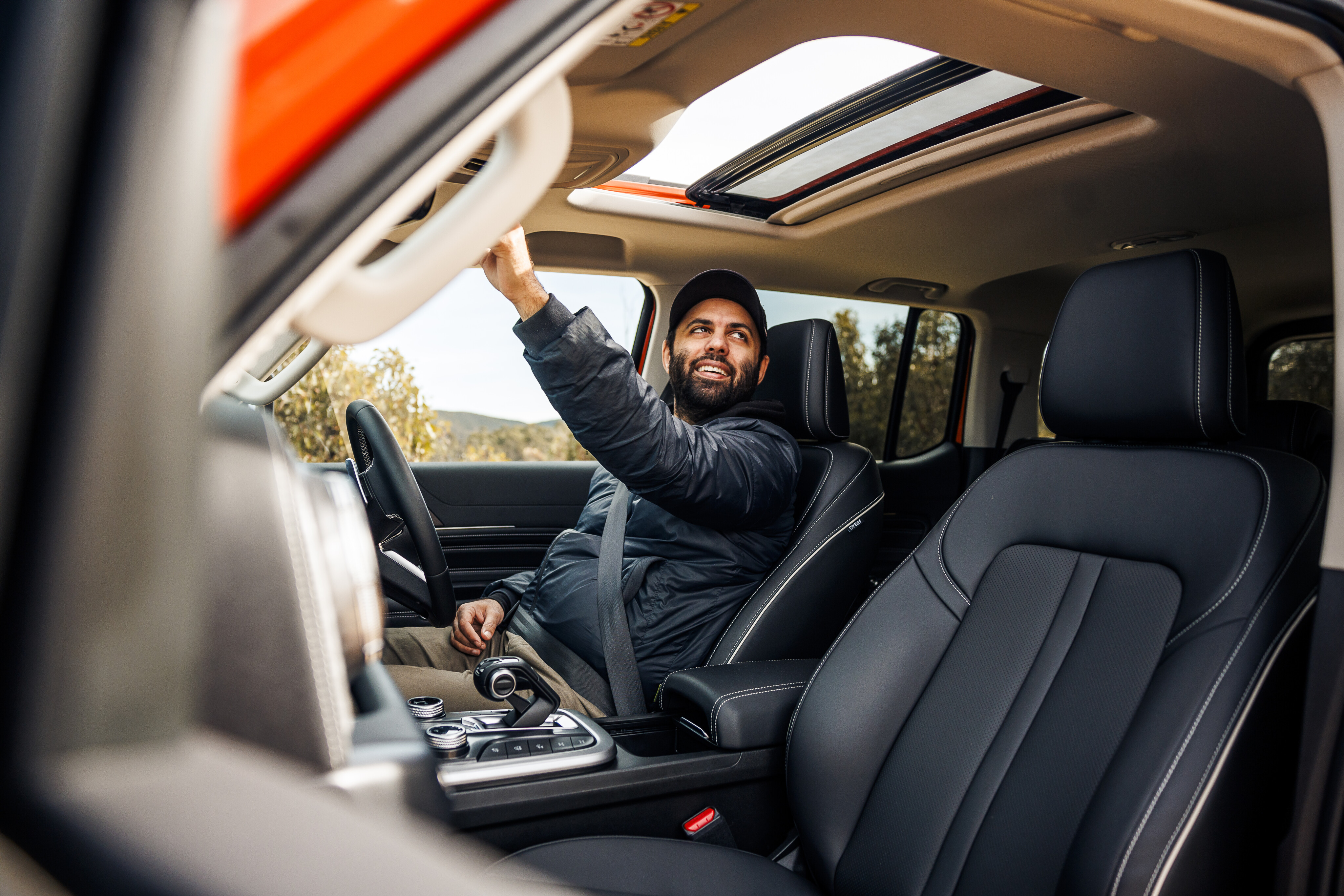
However, to save on leg room, the door pockets are rather narrow and won’t fit anything wider than a can of Coke or a Mount Franklin-sized water bottle.
Rear-seat passengers get two USB ports, and the pews are cosy enough for three abreast. Three kids in particular will fit comfortably on longer drives. Grip handles are installed at every door, making entry and exit easier for front and rear passengers.
For those inclined to travel solo or with one companion only, the rear seats can easily be lowered manually to lay flat – no unnecessary powered adjustment here – for increased storage capacity. Laying the rear seats flat does impinge on front leg room, and may affect taller drivers and passengers.
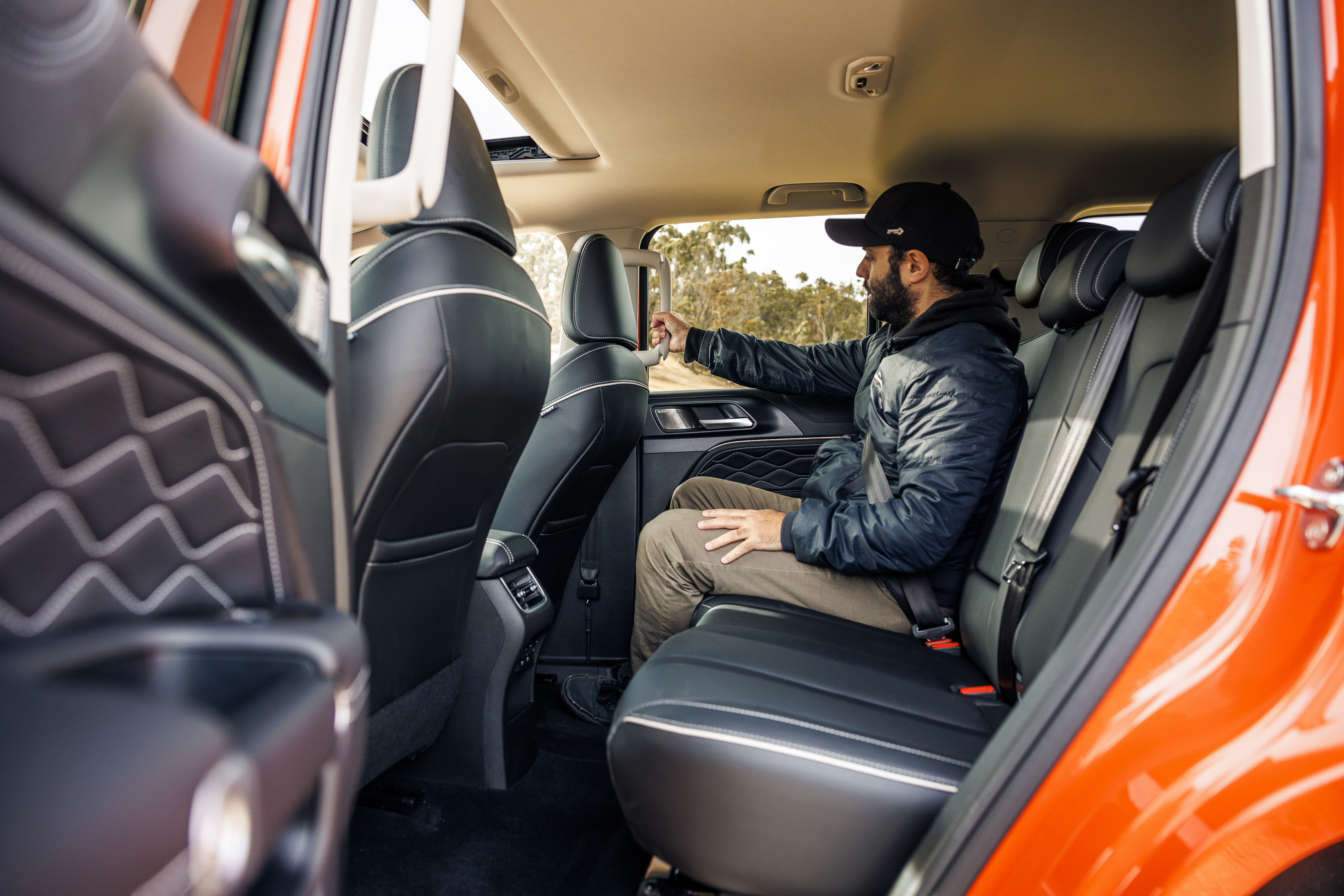
With the rear seats folded flat, there is a generous amount of storage space in the boot for large items – and wide access from the rear makes loading and unloading a stress-free event.
Even with the rear seats in an upright position, boot space is sufficient enough to squeeze in camping kit for a weekend away with the family. As a bonus, a 220-volt power outlet is positioned in the boot of Ultra models, as well as luggage nets to keep smaller items out of the way.
On the downside, a poor maximum payload of just 446kg means that, while gear will fit, you’ll still have to be selective about what you take. Still, it’s better than the Tank hybrid’s 394kg. For comparison’s sake, a four-door Wrangler Rubicon has a 570kg payload capacity.
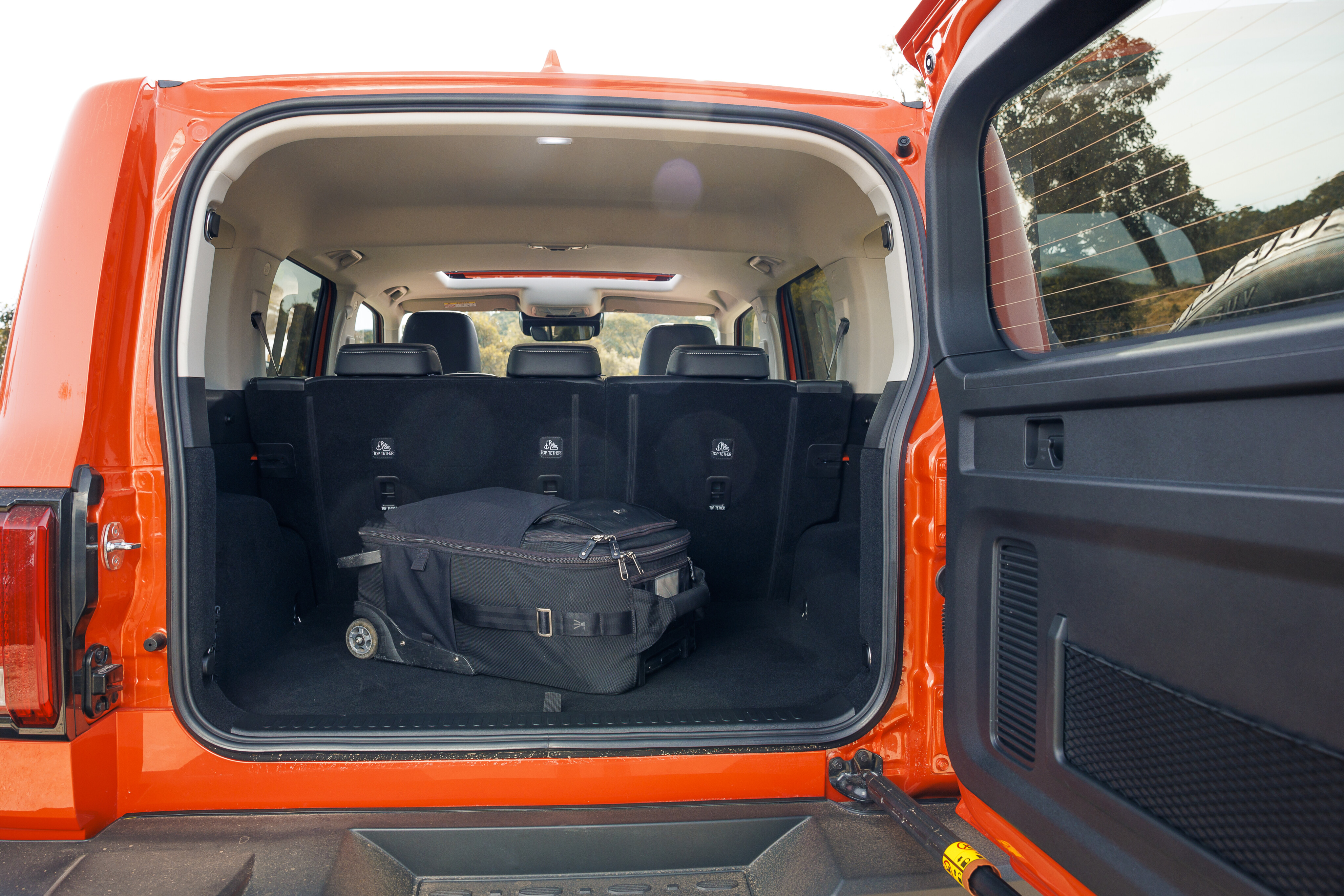
Back up the front, and the 12.3-inch central touchscreen is intuitive and easy to use.
Apple CarPlay and, in our case, Android Auto connects and works flawlessly, with the menu screens and user interface easy to navigate and logical in design.
The omission of dials and buttons for volume controls and the like is disappointing for off-roaders, with these buttons found on the steering wheel and touchscreen. However, there are physical buttons for the climate control functions.
An issue we encountered was that metallic trim adorning the front dash and steering wheel had a tendency to reflect sunlight and cause issues for the driver. While for off-roaders, the carpet flooring is prone to get dirty quite easily – a set of durable floor mats would be a welcome addition.
| 2023 GWM Tank 300 measurements | |
|---|---|
| Length | 4760mm |
| Height | 1903mm |
| Width | 2750mm |
| Wheelbase | 1930mm |
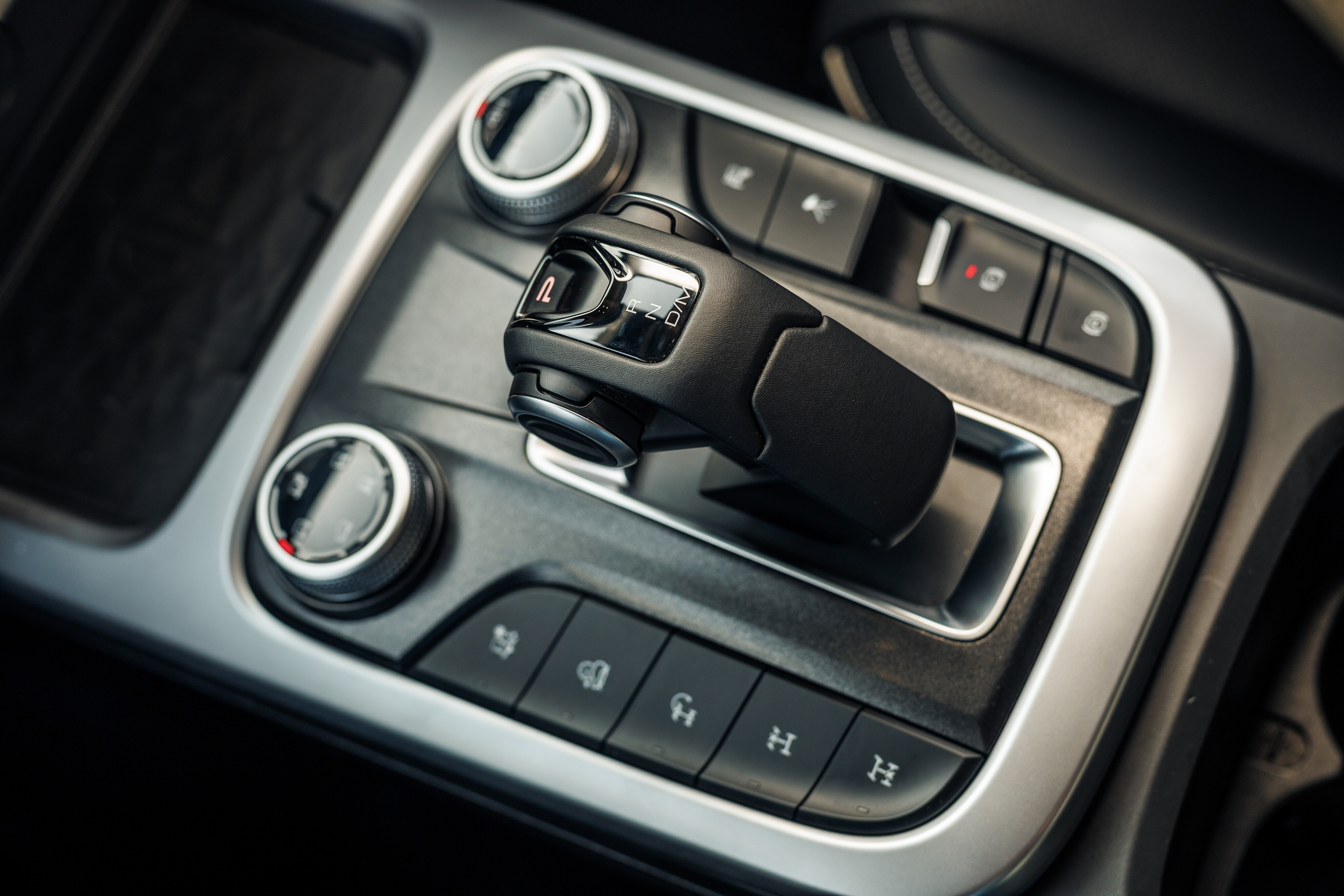
What is it like to drive?
The Tank 300 is a well-equipped vehicle, with the Ultra getting front and rear diff locks as standard, as well as a suite of driving and terrain modes.
Despite its arsenal of off-road weaponry, we would opt for a set of more aggressive tyres in lieu of the Michelin Primacy SUV 265/60 R18s the Tank 300 comes with from the showroom floor, which we found to be a bit too road-focused and slightly underwhelming off-road.
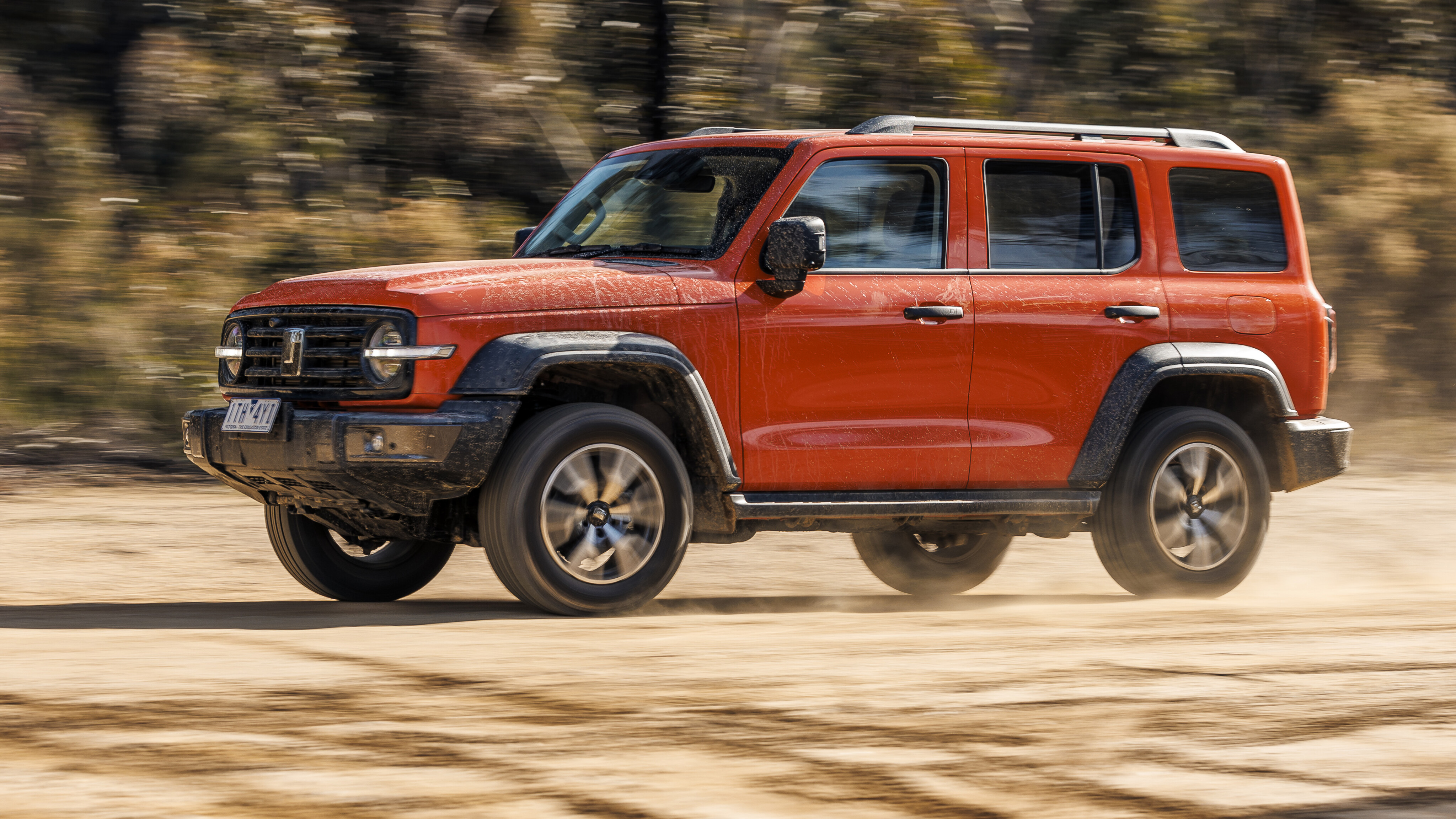
Its 162kW/380Nm four-cylinder 2.0-litre petrol engine can also feel underpowered at times when off-road, especially when heavier throttle application to increase momentum is required for steeper rock-crawling sections.
That being said, it still mounted every obstacle we faced thanks to the combination of its lockers and responsive eight-speed automatic transmission. The Ultra gets 'tank turn' functionality, while crawl control is standard across the range.
Articulation is adequate – 33-degree approach, 34-degree departure and 224mm of ground clearance – and we didn’t have any issues with the front, rear or side steps making contact with the ground at any stage – our only incident was a dislodged number plate following a water crossing.
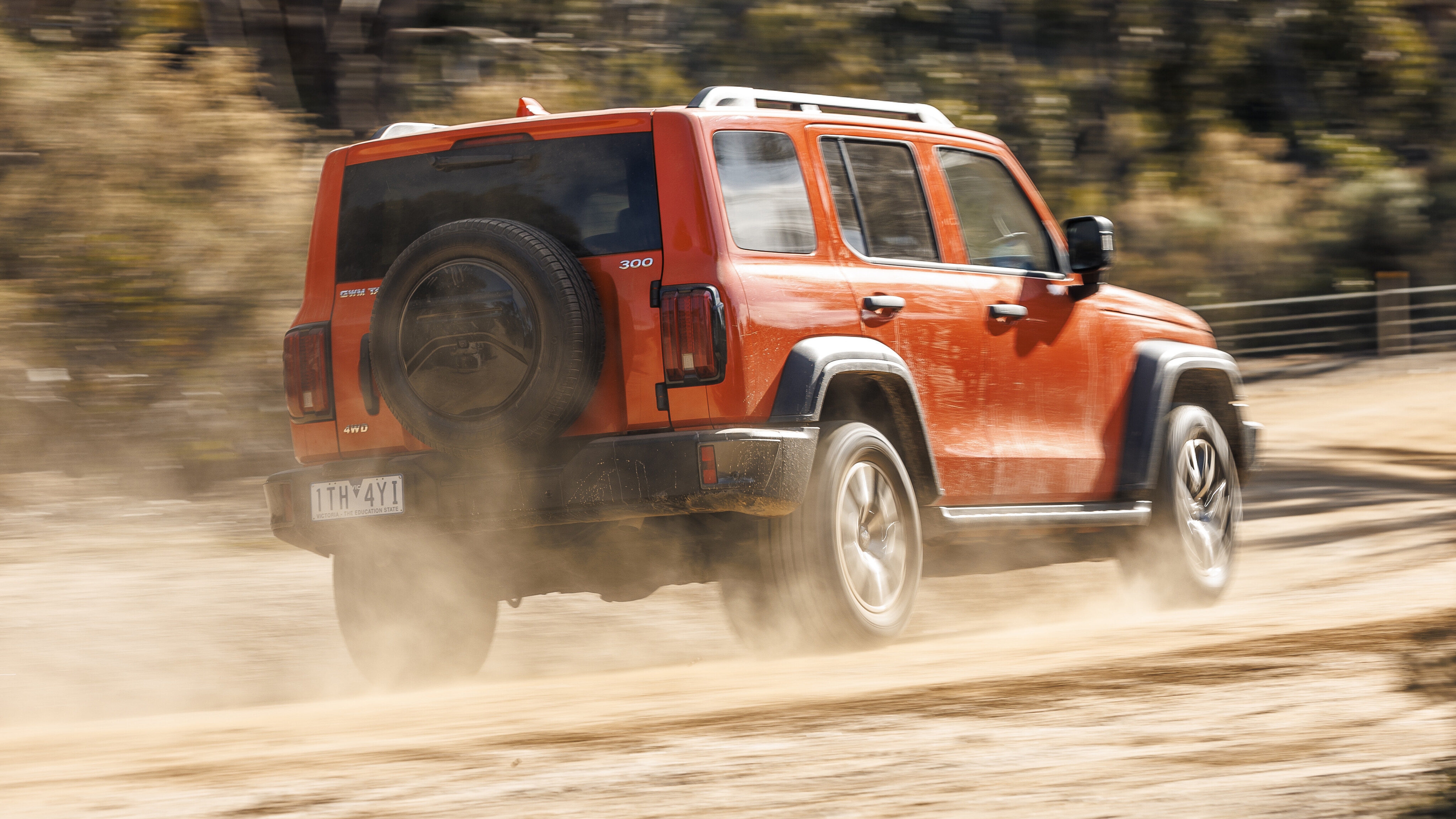
Three-piece chassis protection is in place to guard vital components, though the Lux variant only gets two-piece protection. A front recovery hook is installed if things turn pear-shaped.
On potholed dirt roads the suspension feels slightly firm, but it does settle down when backroads convert to tarmac. On the blacktop, the Tank’s steering can feel slightly off-centre - similar to the GWM Ute, but not quite as bad (if you’ve driven that). Steering feel can be adjusted between Sport, Comfort and Light settings, which help with personal preferences.
A suite of driving aids - autonomous emergency braking, lane-departure warning, lane-keep assist, traffic sign recognition, rear cross-traffic alert, adaptive cruise control, hill start assist, and hill descent control - are there to assist the driver, but some intrude to the point of being annoying.
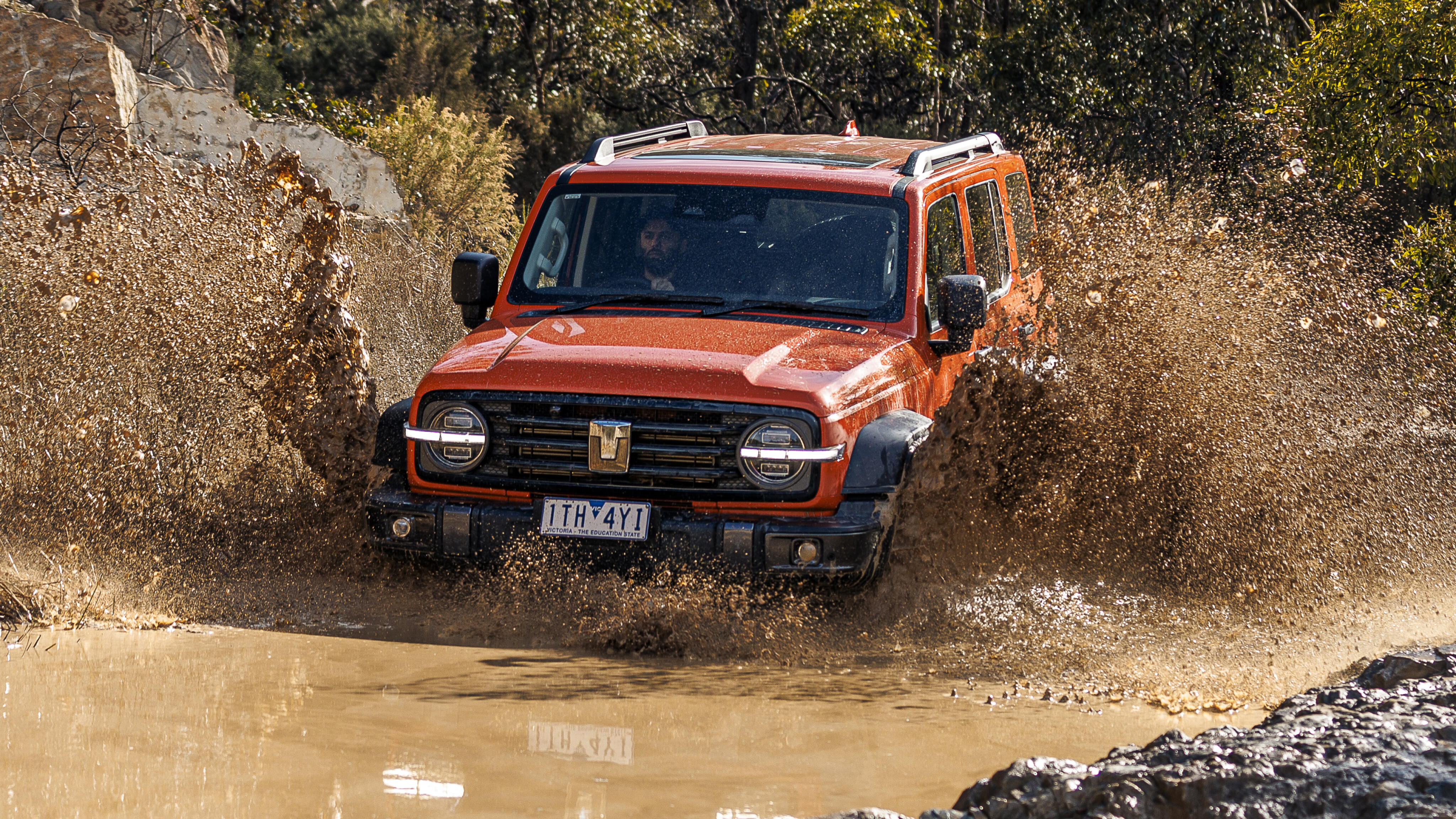
Lane Keep Assist, for example, can be unnecessarily abrupt in the way it tugs at the wheel should you wander close to white lines.
Keeping the back-up emergency lane assist option on is recommended, though. We suspect most owners will quickly turn a few off, and, gladly, most systems and settings can be personalised extensively using the central touchscreen.
Another quirk is the way the blind-spot cameras activate – and stay activated – when indicating. This causes drivers to sit at an intersection, waiting to turn, with the cameras blocking access to Maps, Spotify and other apps one would normally interact with when stationary.
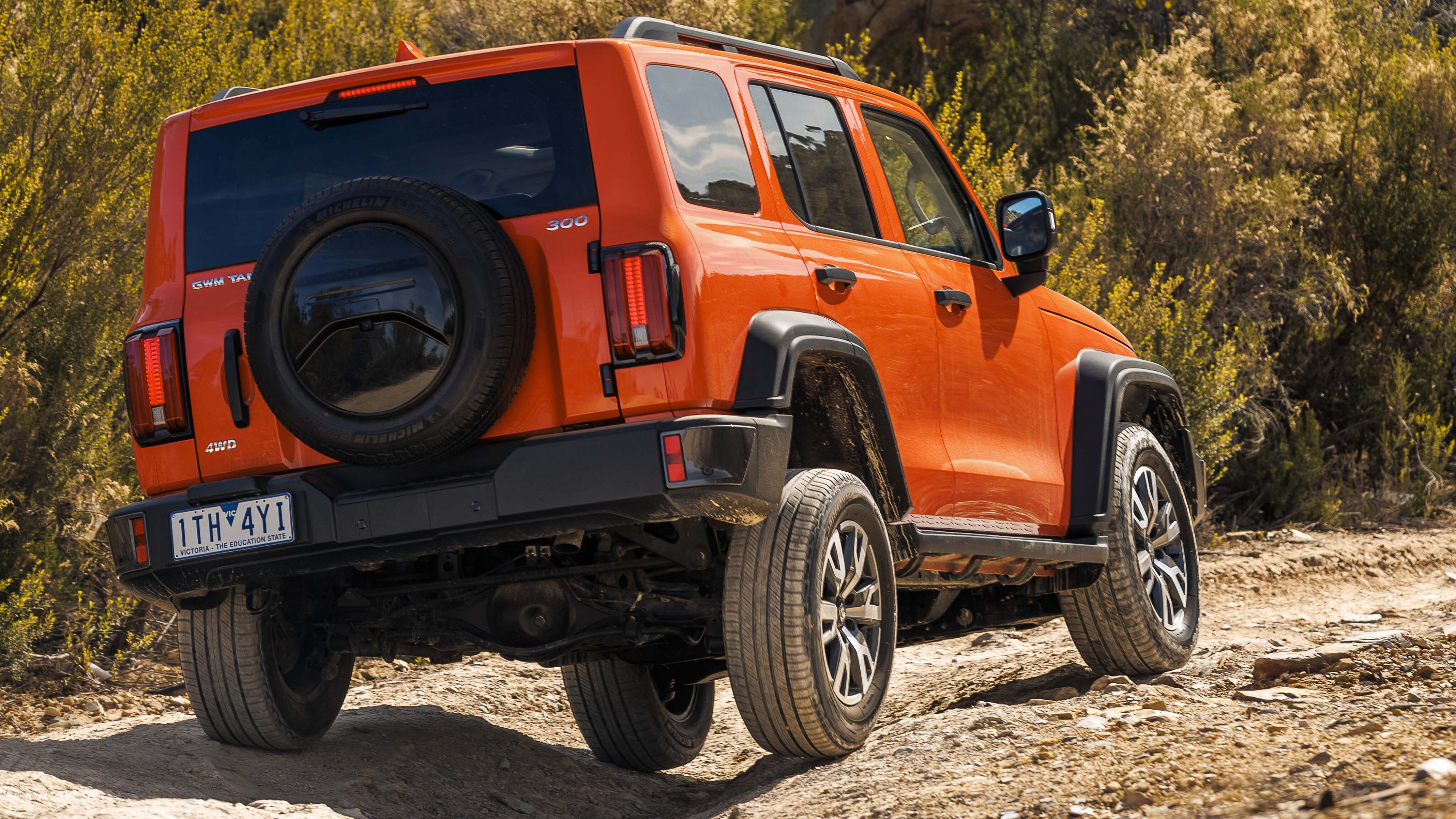
It’s mystifying and something we couldn’t deactivate despite hunting within the settings.
The indicator stalk itself is cause for another minor quibble, as it doesn’t provide immediate feedback, feel or affirmation when activated – it’s something you do get used to over time, though.
Speaking of minor quibbles, the key fob is also a strange design choice, as it doesn’t feature a hook so that it can be attached to a key ring. For absent-minded folks like myself, it’s just a matter of time before it gets lost.
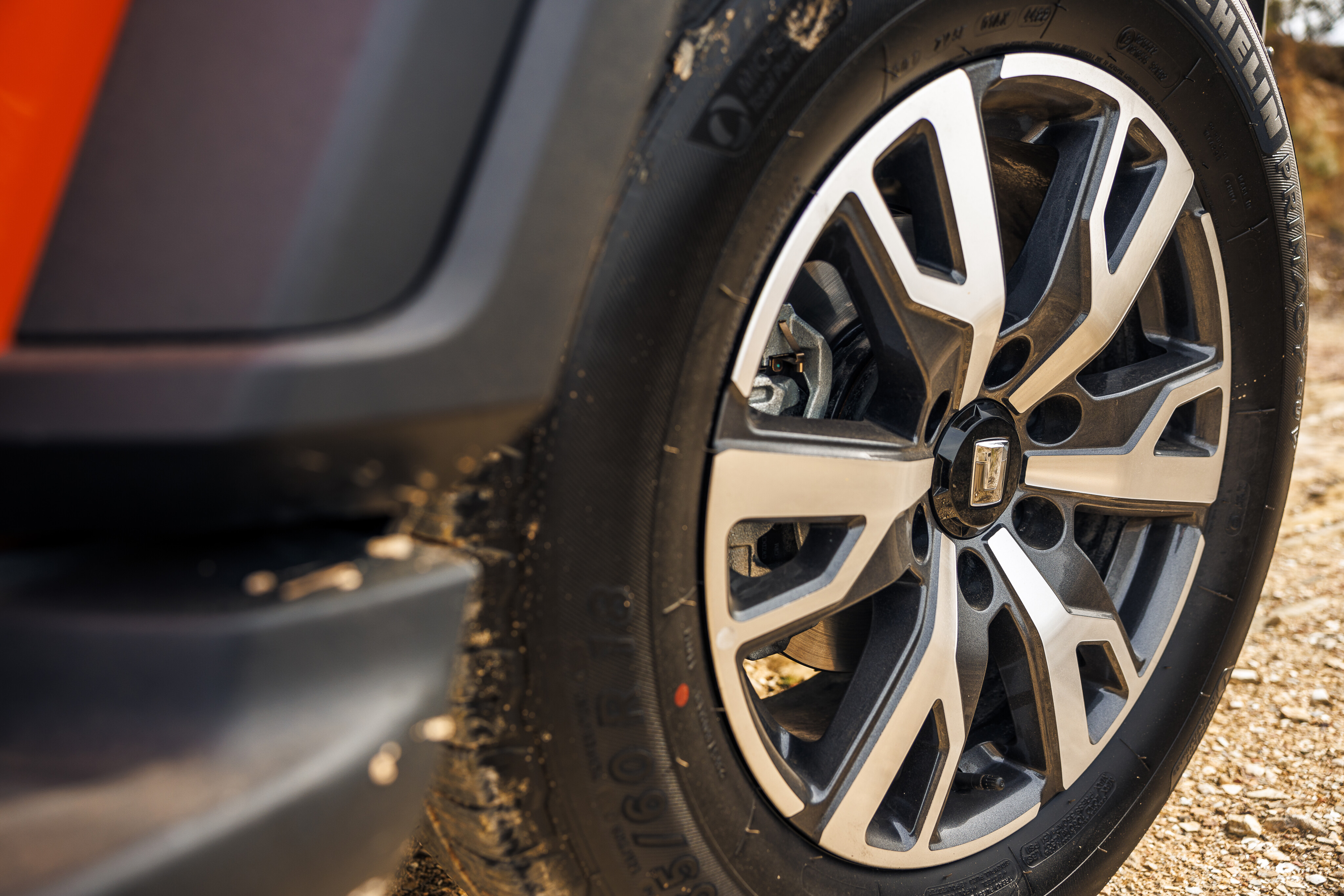
How much fuel does it use?
While the 162kW/380Nm four-cylinder, 2.0-litre engine adequately ferries the Tank’s 2155kg kerb weight, it does need to sip a fair amount of 91 to get the job done.
At the best of times, the Tank will sit on around 9.5 litres per 100km.
Load up the family and associated camping kit for a weekend away, and that’ll rise sharply – on our off-road run for example (with not much load on board) that figure lifted to 14 litres per 100km.
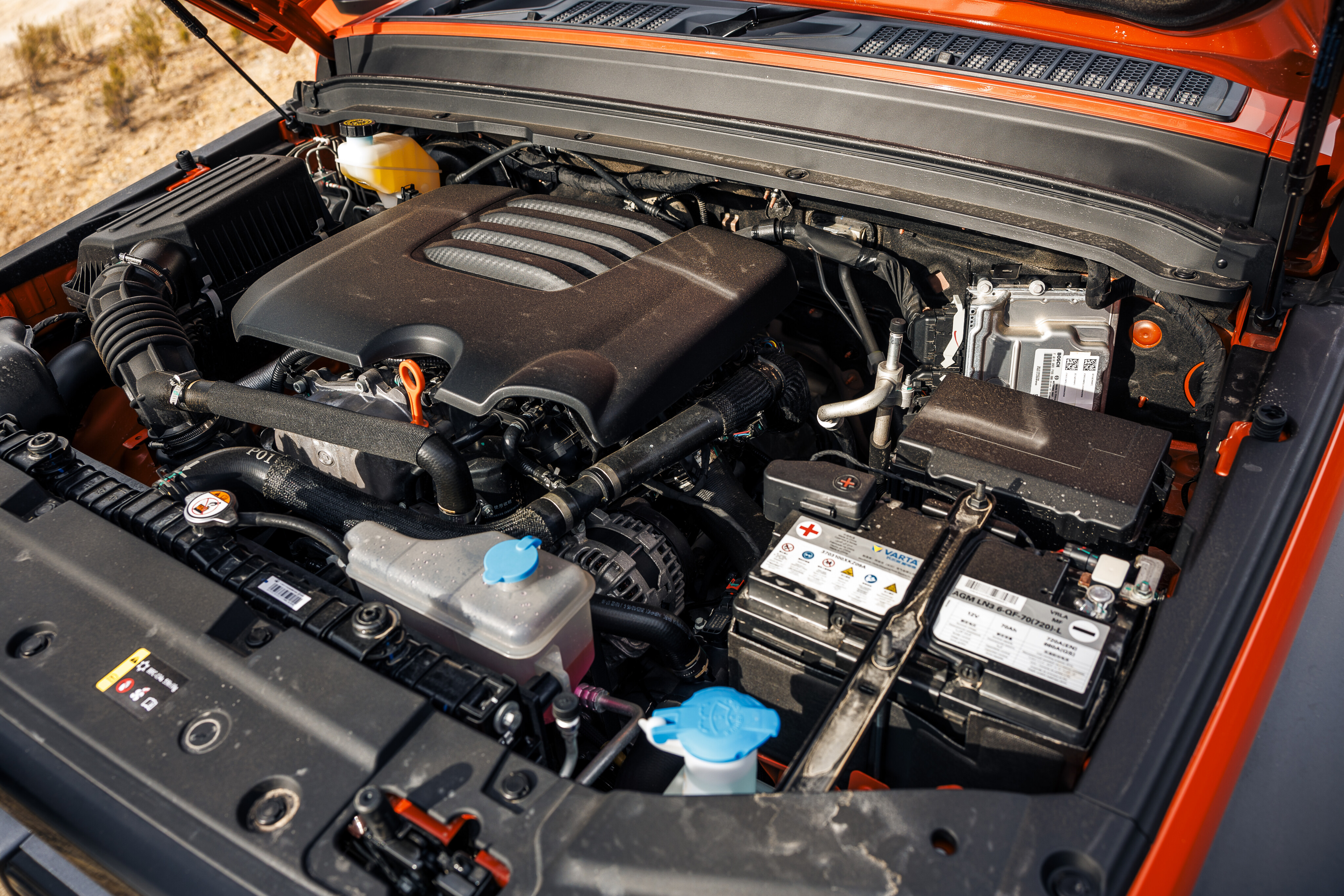
How safe is it?
The as-mentioned TPMS system is a welcome addition, with the tyre information easily accessible via the customisable instrument cluster.
Plus, the Tank is eschewed with an abundance of driving aids including autonomous emergency braking; lane-departure warning; lane-keep assist; traffic sign recognition rear cross-traffic alert; adaptive cruise control; hill start assist; hill descent control; and a surround-view camera with ‘transparent chassis function’.
Seven airbags (front, side, curtain and centre) are installed, and the GVM Tank 300 (build dates from September 2022 onwards) received a five-star ANCAP safety rating in December 2022 with scores of 88% for adult occupant protection, 89% for child occupant protection; 81% for vulnerable road user protection; and 85% for safety assist.
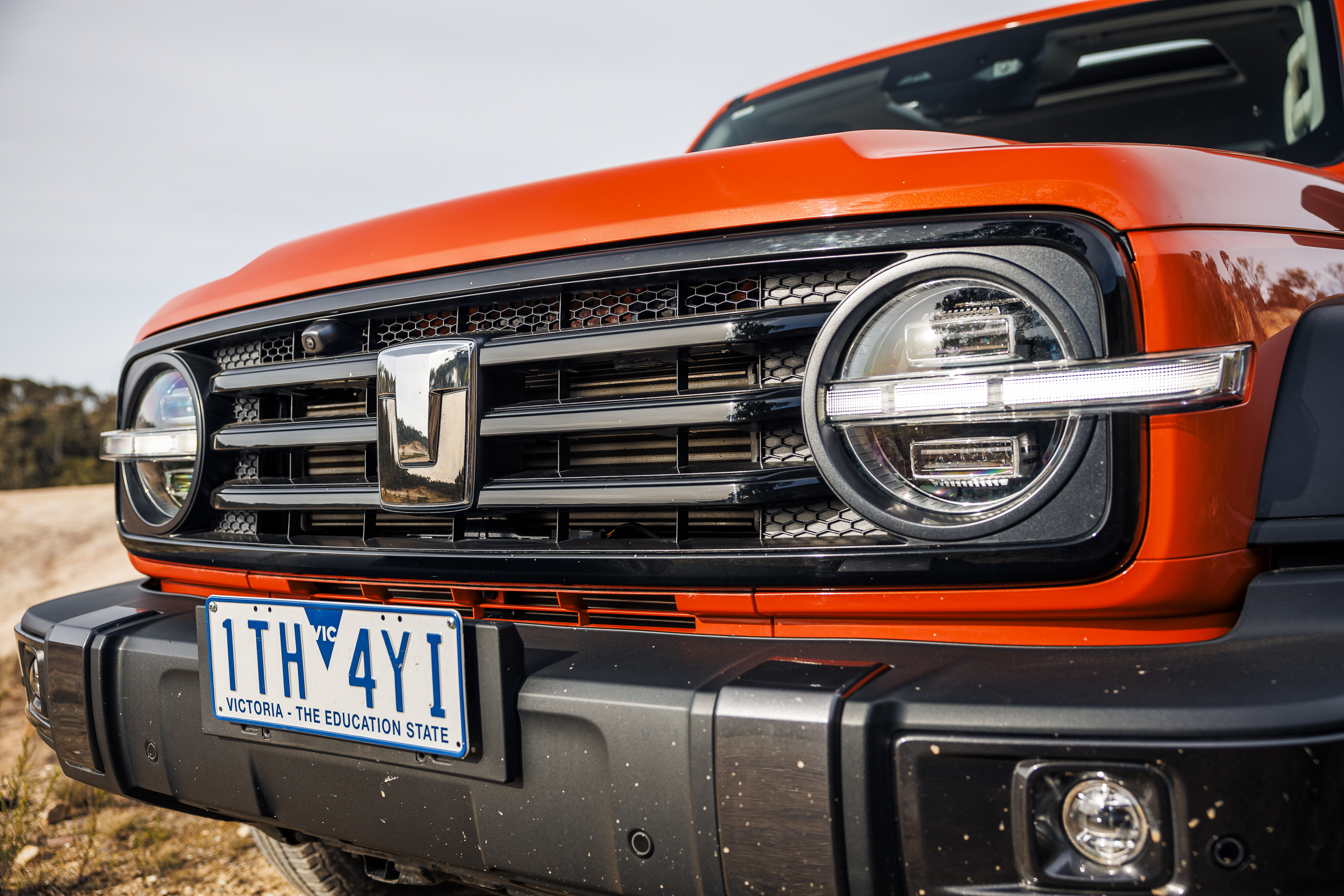
Warranty and running costs
The Tank 300 is covered by an impressive seven-year unlimited-kilometre warranty. Capped price servicing covers the first five services and totals $2000. The Tank is also covered by GWM’s roadside assistance, which is complimentary for the first five years of ownership.
| Time/Distance | Cost |
|---|---|
| 12 months/10,000km | $300 |
| 24 months/25,000km | $300 |
| 36 months/40,000km | $550 |
| 48 months/55,000km | $550 |
| 60 months/70,000km | $300 |

VERDICT
GWM must be doing something right. Much like other budget options in Australia, its sales figures are on a steady incline in 2023.
For the Tank 300, it offers a lot of value for its $50,990 price point. Despite shortcomings when it comes to aspects of its on-road behaviour, the interior feels premium for a car of this ilk, it has a five-star safety rating and comes with a seven-year unlimited-kilometre warranty, and it’s off-road-ready from the factory.
Rugged design, high levels of customisation and personalisation, and an enticing price point make this Chinese SUV food for thought – just don’t call it a Wrangler competitor.
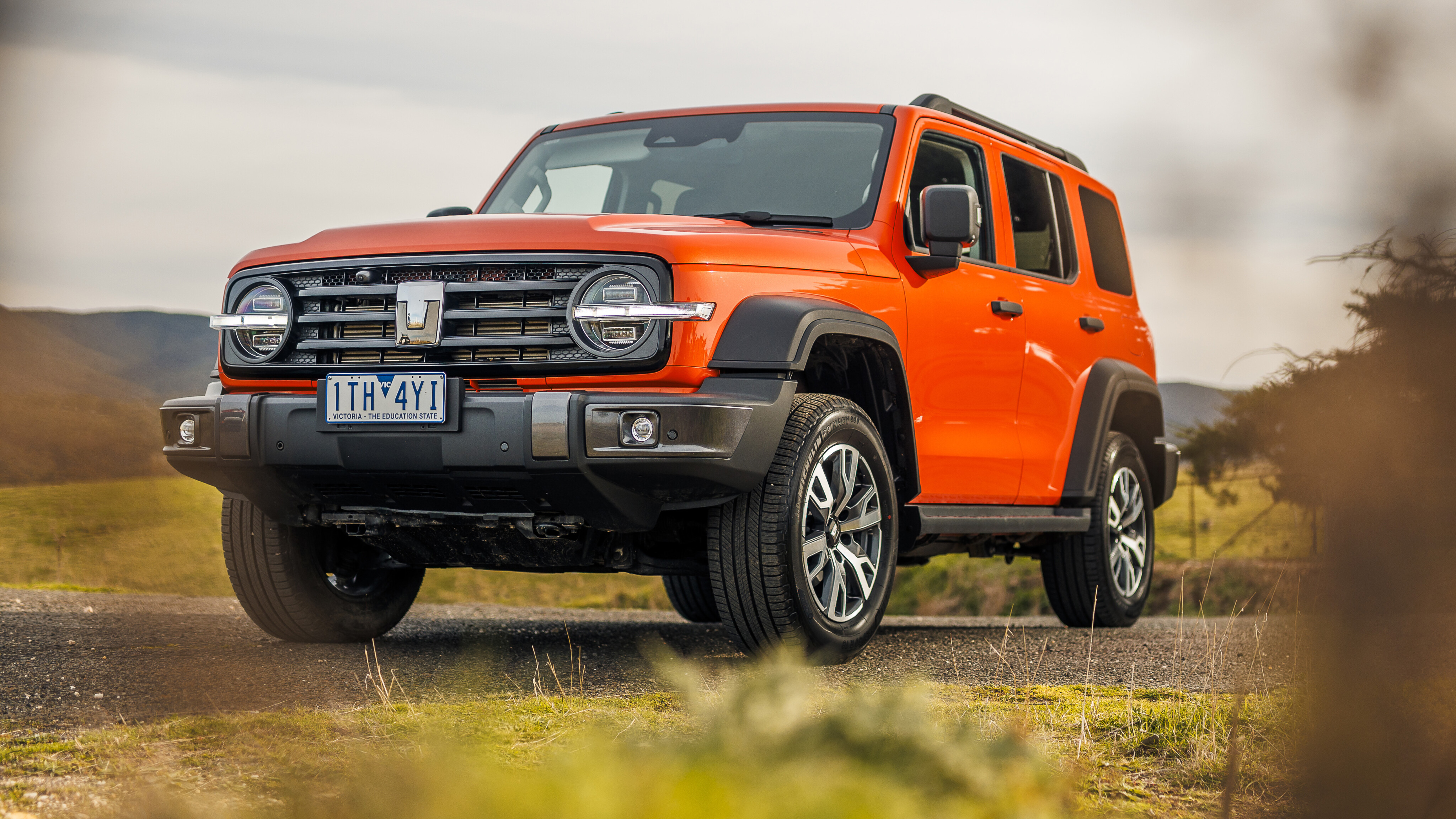
| Price | $50,990 |
|---|---|
| Engine | 2.0L I4 |
| Capacity | 1967cc |
| Max power | 162kW @ 5500 |
| Max torque | 380Nm @ 1800-3600 |
| Transmission | 8-speed automatic |
| 4x4 system | Part-time 4x4 |
| Suspension (front and rear) | Double wishbone (front); Multi-link (rear) |
| Tyres | 265/60 R18 |
| Kerb weight | 2155kg |
| GVM | 2552kg |
| Payload | 446kg |
| Towing capacity | 2500kg |
| Seats | 5 |
| Fuel tank capacity | 75L |
| ADR fuel claim | 9.5L/100km |
Things we like
- Equipped with plenty of features
- Highly customisable
- Off-road capable
Not so much
- Some intrusive driving aids
- A handful of interior quirks
- Limited payload capacity



COMMENTS